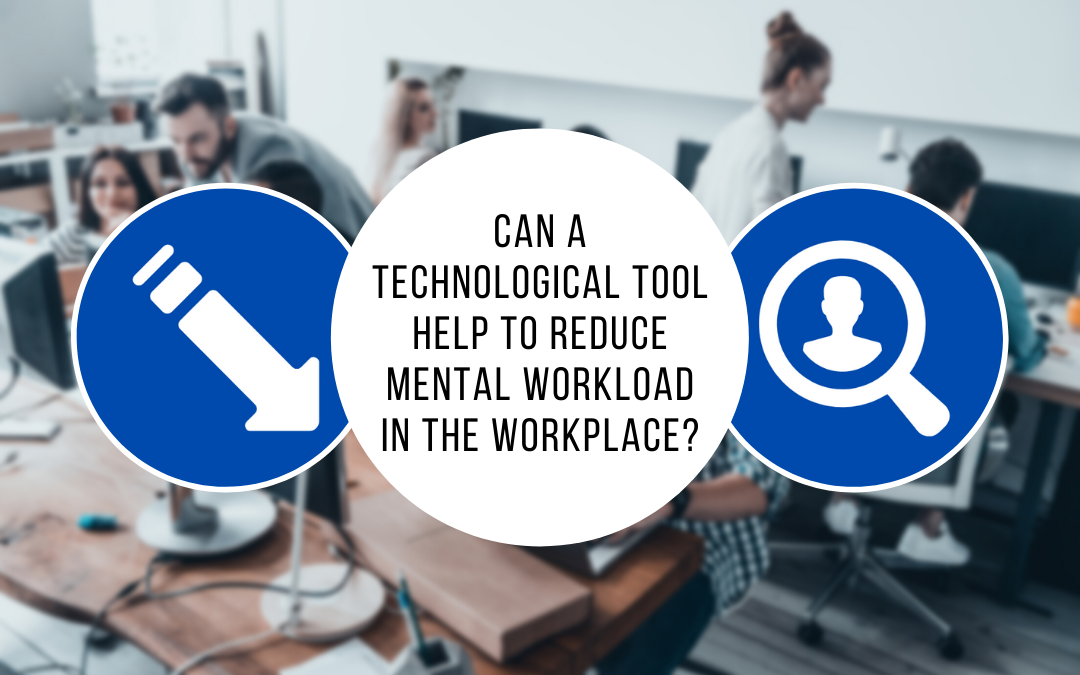The mental workload at work is undoubtedly one of the greatest contemporary challenges of corporate management. It is a difficult problem to understand because it is caused by multiple factors and can have serious consequences for employees: chronic fatigue, absenteeism, emotional disorders, anxiety, depression… Managers should therefore understand the central importance of this notion if they want to improve the well-being of their employees and, ultimately, the productivity of the company. Let’s not fool ourselves: a worker’s satisfaction rate has a direct impact on his motivation, energy and work. Fortunately, managers now have state-of-the-art tools and technologies to enhance their employees’ work lives.
What are the factors that can influence and reduce mental workload at work?
There are many factors that can generate mental workload in the workplace. Work overload and lack of rest time are two inseparable corollaries in the formation of stress in an employee. Some are also victims of internal or external violence within the company, which can make things worse and cause anxiety or loss of control.
In most cases, mental workload is influenced by an increase in the amount of work and the pressures of daily life. For the employee, this can result in physical and mental problems (fatigue, stress, nervousness, increased risk of accidents) and an overall decrease in productivity.
Fortunately, the increase in mental load among employees and the general deterioration of working conditions within a company are not irreversible processes. Nowadays, more and more managers and employers are becoming aware of this and decide to anticipate the problems to come. There are different ways to reduce the mental load of your employees.
Better distributing the workload in their schedule or among different teams is a first step. Respecting rest periods by discouraging employees from taking their work computers with them on weekends or vacations will allow them to enjoy their surroundings and recharge their batteries.
Finally, by improving communication between the management team and employees, trust and well-being will soon resurface.


What is the role of management in mental load issues?
Management is not an exact science and is a relatively recent concept in the history of work. At times, there is a tendency to blame all human problems in a company on the manager and to try to resolve all conflicts through him. These errors are common in the workplace and can be found in all sectors of activity.
Indeed, it is possible that the working conditions in a company deteriorate despite the good will of the managers. On the other hand, it is rare to see employees who are fully developed while being overworked and overburdened.
Although it is not responsible for all dysfunctions, management remains the best way to calm down a degraded professional atmosphere, to resolve conflicts between workers and to put out the fire in emergency situations.
Thus, reducing the mental load in a company is an eminently managerial issue. In order to achieve this, managers must first be made aware of the issues of psychosocial risks at work (PSR) and mental workload.
To help them, there are many training courses, proposed in particular by the National Institute for Research and Safety(INRS), but also more and more tools resulting from new technologies. If used correctly, tools like Perfony can highlight all the gaps in your company’s management and propose quick and easy solutions.
A tool to reduce mental workload at work?
Are there tools to reduce mental workload at work?
Yes, sophisticated tools like the Perfony can reduce the mental load of employees and decrease PSR at work. Perfony relies on different features that will allow managers to make things happen in a concrete way. For example, it proposes to group and centralize the tasks to be performed. This prevents oversights and allows for a better distribution of workloads. At a glance, managers can see the remaining tasks. KPI’s give them the ability to track the work done and not add to the workload of already overworked employees. In addition, Perfony encourages managers to adjust their time to give more time to the employees who need it most. Today, a tool like Perfony is one of the main solutions for solutions to mental workload at work. Thanks to it, a management team can quickly act on employee satisfaction and contribute to increasing their productivity. This tool allows you to clearly see the progress of a project according to the work done by each person. It offers a more playful view of teamwork, with an emphasis on progress and project completion. By giving meaning and direction to their daily tasks, it generally helps to boost employee motivation and involvement.
